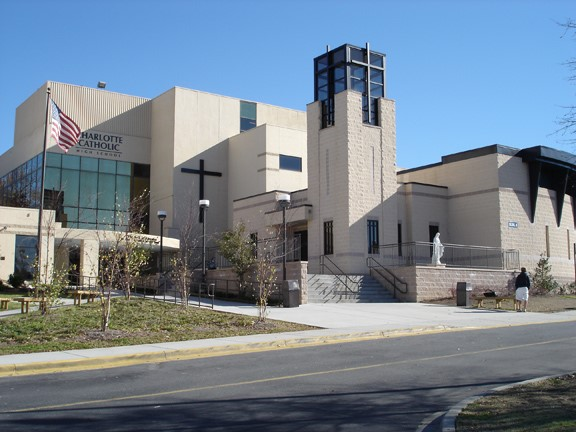Billard v. Diocese of Charlotte
Case Snapshot
The Roman Catholic Diocese of Charlotte operates Catholic schools to accomplish a religious mission – not only to provide a robust academic education, but to help form students in the Catholic faith. To accomplish that mission, the Diocese asks all its teachers to uphold Catholic values. But in 2017, one of its substitute teachers sued the Diocese after he lost his position for publicly advocating against Catholic teaching. Becket is defending the Diocese’s right to ensure that Catholic teachers in Catholic schools uphold the Catholic faith.
Status
Share this Case

Case Summary
The Diocese’s Dedication
As an essential part of its mission to pass on the Catholic faith, the Diocese of Charlotte operates 19 schools across western North Carolina, including nine in the fast-growing Charlotte area. The Diocese’s schools are sought after for a reason: they not only provide an academically rigorous education in a diverse environment; they are also committed to teaching students the Catholic faith. To accomplish its religious mission, the Diocese asks all employees to conduct themselves in a manner consistent with the teachings of the Catholic Church.
The Lawsuit
Lonnie Billard taught English and Drama at Charlotte Catholic High School for 12 years before retiring and transferring to a substitute role. To teach at Charlotte Catholic, he signed a contract agreeing to uphold teachings of the Catholic Church. But in 2015, he entered a same-sex marriage in knowing violation of Catholic teaching and made public statements on social media advocating against Church teaching. When the school chose not to keep calling Billard as a substitute teacher, he partnered with the ACLU to sue the school and the Diocese for asking their teachers to support the school’s religious mission.
Upholding a Religious Mission
The Constitution and federal law protect the right of parents to direct the religious education of their children, and the right of religious institutions like the Diocese of Charlotte to select teachers who agree to uphold their religious mission. These rights have repeatedly been upheld by the Supreme Court, which has emphasized that “educating young people in their faith, inculcating its teachings, and training them to live their faith are responsibilities that lie at the very core of the mission of a private religious school.” Religious organizations must be free to choose those who carry out their religious mission. This not only protects the fundamental freedoms of parents and religious schools to decide how to pass on their faith, but also protects the proper separation of church and state.
On September 3, 2021, a federal district court in Charlotte, North Carolina, ruled against the Diocese of Charlotte. The Diocese appealed that decision to the U.S. Court of Appeals for the Fourth Circuit, which on May 8, 2024, reversed the district court and affirmed that faith-based schools like Charlotte Catholic enjoy broad freedom to employ teachers who agree to uphold their faith. The court explained that Billard was a minister because Charlotte Catholic required all its teachers to “model and promote Catholic faith and morals,” making Billard, as a teacher at the school, a ‘“messenger’ of its faith.” The Fourth Circuit reiterated that teachers at faith-based schools “are different,” because they are entrusted with “responsibilities that lie at the very core of the mission of a private religious school.” Since the First Amendment states that civil courts are “’bound to stay out’ of employment disputes involving ministers,” the court held that Billard’s lawsuit could not proceed.
The Diocese of Charlotte is represented by Becket and Troutman Pepper.
Importance for Religious Liberty:
- Freedom of religious groups from state intrusion on religious affairs: Churches and religious organizations have a right to live, teach, and organize themselves in accordance with the tenets of their faith. When the government unjustly interferes in internal church affairs, the separation of church and state is threatened. The First Amendment ensures a church’s right to self-definition and free association.